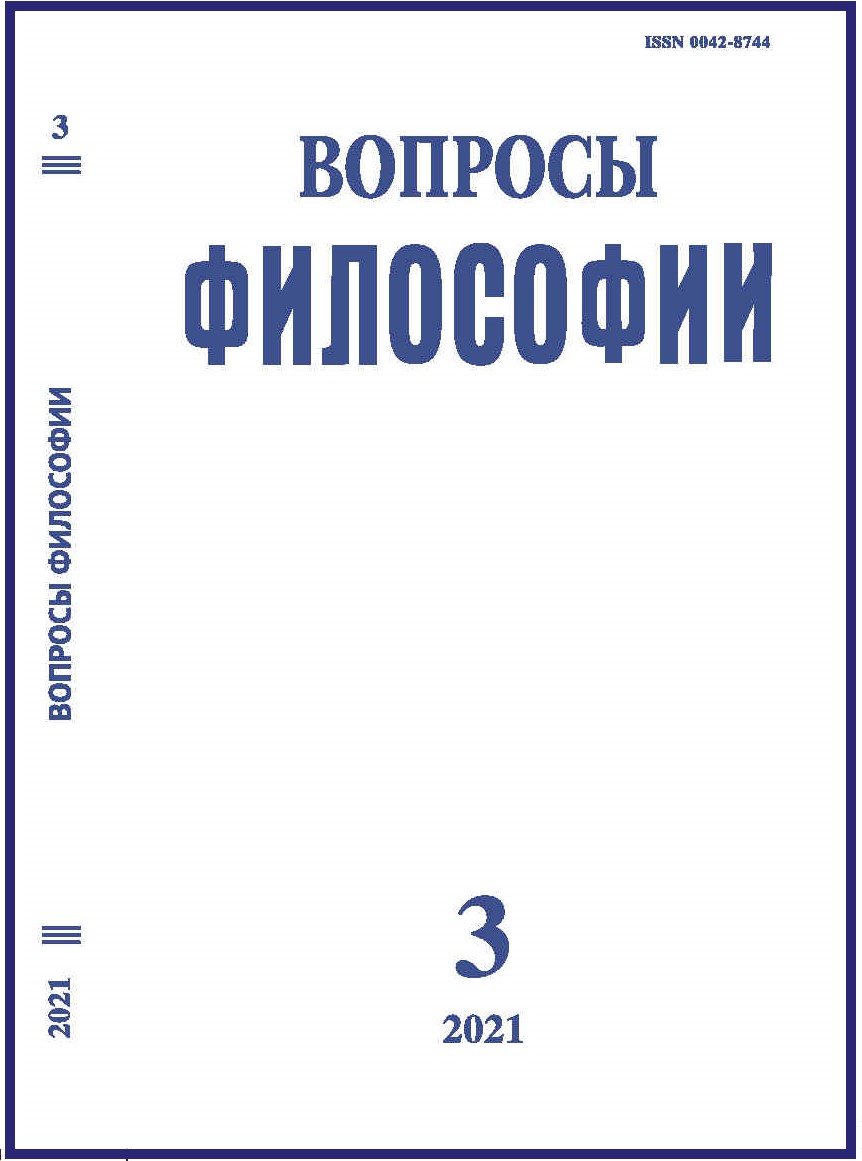Conjugation of Meanings and Subjectivity (Reflection on the Book)
DOI:
https://doi.org/10.21146/0042-8744-2021-3-135-145Keywords:
poetic language, literariness, language, structure, local development, functionality, phenomenology, structuralism, reference, translation, transfiguration, topological subjectivityAbstract
The article presents reflections on the book Roman Osipovich Yakobson [Avtonomova, Baran, Shchedrina (eds.) 2017], published in the series Philosophy of Russia of the First Half of the 20th Century, which contains critical analytical works on the theoretical heritage of the outstanding linguist and humanities of 20th century. The problems of the articles are considered in the current contexts of the humanities and in the prospects of contemporary philosophical discussions. Particular attention is paid to such topics as poetic, language, structure, local development, structuralism, creativity, subjectivity. The creative presence of Jacobson’s ideas in the humanitarian knowledge of the 20th–21th centuries shown in the interaction of scientific ideas and in the dialogues of scientific and national and cultural traditions. This confirms the universal responsiveness of the ideas of an outstanding scientist, which most of all testifies to the demand for his views in the interdisciplinary space of philosophical and humanitarian reflection: the holistic coverage of the material and the desire for theoretical integrity from the very beginning were in the center of attention of Jacobson. The publication of the collection carefully studied the basic constants of the theoretical heritage of Jacobson – shows interdisciplinarity in action. The methodological gesture inherent in Jacobson’s research outlines and substantiates the most important trend in the formation and transformation of knowledge of the 20th and 21st centuries – the growing importance of conceptual interactions and topological aspirations of thought. These qualities of reflection contain a path to the existential, anthropological, aesthetic and ethical aspects of life: freedom of co-creation and freedom of existence can only be determined against the background of symbolic determinations – the human language, first of all.

